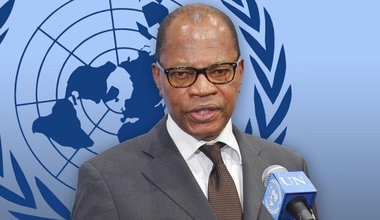Special Representative of the Secretary-General and Head of the United Nations Office for West Africa and the Sahel (UNOWAS), Dr Mohamed Ibn Chambas, says West Africa and the Sahel Region continue to suffer from multiple challenges triggered by the COVID-19 pandemic.
This was contained in the latest report of the Secretary-General on the activities of UNOWAS to the UN Security Council.
The report, which was made available by the UN to the Ghana News Agency, indicated that the pandemic was plunging most countries of the region into recession and leading them to a diversion of resources from productive investments and the fight against insecurity.
“Now that we are facing a second wave of the pandemic and relieved that vaccines are being distributed, it is ever more important that we collaborate to apply the manifold lessons learnt in terms of improving governance and delivering essential services for societies to emerge more adept, secure, and resilient,” Dr Chambas said.
“Nowhere has this resilience been more sorely tested than in the Sahel, where an ever more volatile climate has brought massive floods, affecting more than 1.7 million people and resulting in the destruction of houses and livelihoods”.
He said but despite the COVID-19 pandemic, the electoral calendar was maintained, and the polls overall went well.
“Electoral Management Bodies have demonstrated impressive technical capacity to organise and conduct five presidential, three legislative, and two local elections in West Africa,” Dr Chambas stated.
He noted that increasingly, elections had also been funded exclusively from national budgets.
During his briefing to the Security Council, the Special Representative, underlined the significant progress made on both women and youth, peace and security agenda in West Africa and the Sahel.
“I am encouraged that action plans are now in place in 14 out of the region’s 16 countries and I am pleased that this Council is giving the matter its utmost attention. Girls’ education remains a critically important lever for development.
Political will and resources to implement the various instruments, especially education for girls, must, therefore, remain a priority,” he said.


